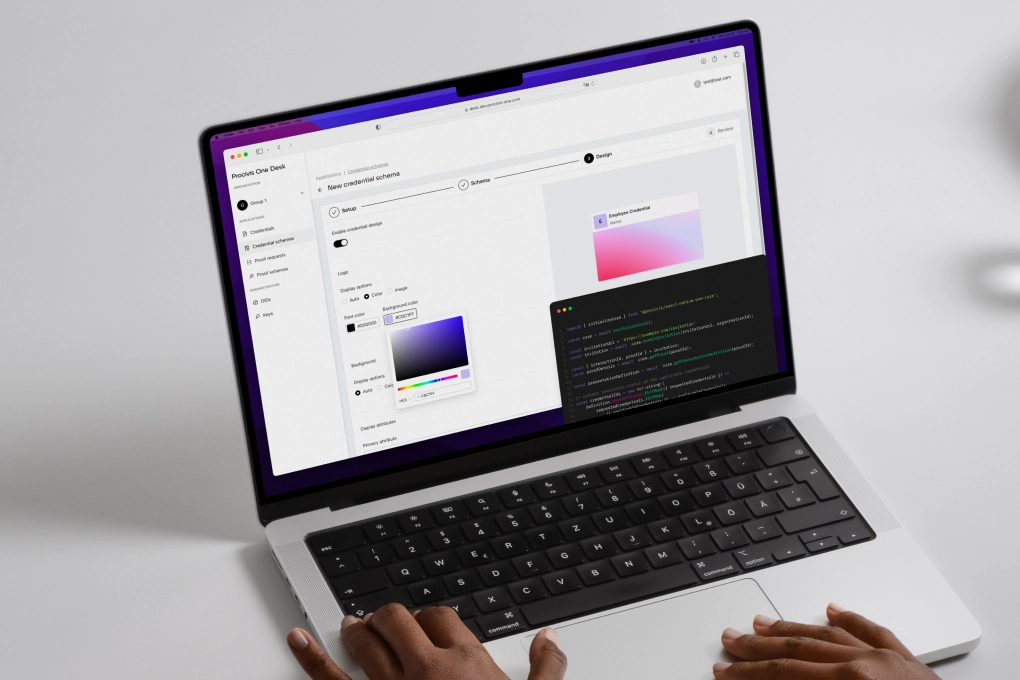Implementation Paths
All Procivis One solutions are deployed on-premises, ensuring your data stays in your environment while making it easier to meet specific regulatory requirements. You can modify deployment configurations to fit your needs and run in air-gapped or highly secure environments.
Procivis One offers three implementation approaches:
- Ready-made components for issuing, holding, or verifying digital credentials with intuitive interfaces
- Enterprise API (Desk API) for custom integrations while retaining enterprise features like access control
- Core API & SDK for maximum flexibility using our open-source foundation
All implementation paths enable you to meet the technical requirements of multiple regulatory frameworks including eIDAS 2.0, the Swiss e-ID, and ISO 18013 mDLs.
Choosing your path
| Components | Ready to deploy with minimal technical integration - ideal for quick implementation |
| Enterprise API | When you need custom UI or specific integrations but want enterprise features |
| Core | Maximum customization and control - build your own solution on our open-source foundation |
Components
Desk Issuer
A server-based credential management solution with an intuitive no-code interface for designing, issuing, and managing digital credentials.

Key benefit: Country profiles eliminate technical guesswork by automatically filtering the interface to show only standards, formats, and algorithms compatible with your chosen regulatory framework (eIDAS 2.0, Swiss e-ID, ISO mDL).
License: Enterprise
Enterprise API
The Desk API powers all server-based components and provides programmatic access to issuing, holding, and verification capabilities for custom integrations.
Key benefit: Build custom interfaces while retaining enterprise features like user and access control, organizational separation, and multi-tenant data governance - ideal when you need specific UI/UX but want proven backend functionality.
License: Enterprise
Core API and SDK
The Procivis One Core is the foundational layer that powers all components, providing direct access to credential issuing, holding, and verification capabilities.
Key benefit: Maximum flexibility and customization for developers who want to build their own solution from the ground up, with both REST API and SDK options for any development approach.
License: Open source